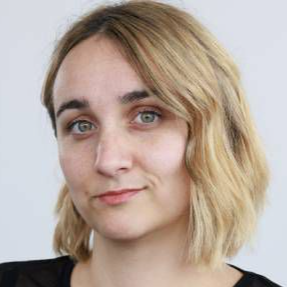"That was the day when we had that cold snap," she said.
How to DAD - It's time to Give A FlickOne in five Kiwis live in energy poverty. That’s not good enough, so we’re taking responsibility for driving change.
You can be part of the solution too. We’ve asked How to DAD to explain how…
With every share of this video, we'll donate an LED bulb to a household in need. Can we get to 10,000 shulbs together? Find out why you should Give a Flick: bit.ly/Give-A-Flick
Posted by Flick Electric Co. on Wednesday, 22 November 2017
McLeod and her husband always make sure to heat the bedrooms of their children, 7-year-old Sophia and 8-year-old Isaac, but will often go without heating in the main areas of the house.
"If we're in and out we don't come home to a warm house," she said.
One of their highest power bills over winter was $501, which includes a discount for early payment, but their average bill over the cold months was about $480.
"We have permanent blankets for the lounge during winter. [When we're] chilling out together everyone has their own blanky. We still have the heater on but we can't crank it right, right up. We have it so we're not getting sick, but it's certainly not comfortable.
McLeod has also put up thermal-lined curtains, gets her family to wear more layers of clothing, and closes the curtains "really early" to keep the heat inside.
Living this way was "not impossible", and McLeod was often reminded of how she and her family still had it better than others.
"I work with people in the community that would look at us and see us as rich guys, which is pretty scary. Some of the families we've worked with, they don't even have power in the winter . . . I can't even imagine living the way they do."
"We're lucky to have our own home as many families don't, but I don't know what more we can do. I always make sure the kids' bedrooms are warm, and for that, I guess we are lucky, but I know many families who can't afford even that,'' said McLeod, who does voluntary work with low-income families in Strathmore.
She felt for those who truly didn't have the option to turn on the heater if it was particularly cold.
"We don't go without, and if we have to we put the heaters on and we suck it up and take money out of the budget somewhere else and pay for heating, but that's a choice."
Flick is working on its lightbulb initiative with a range of community agencies to distribute the bulbs, including the Auckland City Mission and the Well Homes healthy housing initiative in Wellington.
"These bulbs are expensive to buy – that's why we're fitting out a few hundred homes that really need to bring down their power costs," said chief executive Steve O'Connor.
Energy poverty is a reality for at least a fifth of New Zealanders, according to an Otago University study which found that 20 per cent of New Zealanders report they have gone without heating or power because they are unable to afford it.
Energy poverty is where a household needs to spend 10 per cent or more of its income on fuel to keep the house temperature at a healthy level - 18 degrees in the living areas, and 21 degrees in bedrooms.
O'Connor called on other businesses to reach out to their communities, to find ways to help households save money on their housing and fuel bills.
"Housing-related disease and death is unacceptable in a developed country like ours. For every family we help, there are another 10 who need it."
"We don't want this critical health and wellbeing issue to drop out of the national consciousness. We want to challenge every organisation in the system to recognise and act on their responsibility. And we want to be part of ensuring all New Zealand households can prosper. We need systemic change which means we need everyone in the system to recognise the issue and think about what they can do.''
Flick will begin distributing the lightbulbs in the next few weeks.
